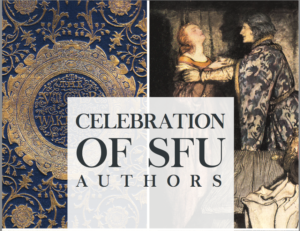I’ve blogged about this before, but given that the Surf Strategically principle of my recently published e-book contains many tips on the subject, I thought the following would be worth repeating.
Continue reading Surfing Tips: Using Text Expansion Utilities and Launchers to Quickly Access Project Documents
Month: March 2018
Betroffenheit: The Show and the Emotions
“Betroffenheit” is a German emotion word. Max Wyman compared it to being gobsmacked. I might add nonplussed. But English and French words only capture part of the meaning of betroffenheit. Crystal Pite, a brilliant Canadian choreographer (Kidd Pivot productions), created an entire dance show that translates betroffenheit in several of the brain’s (verbal and non-verbal) languages.[1] Since seeing this very powerful show a couple of weeks ago, it has frequently come to my mind (a light perturbance); and I’ve discussed it with many people. I had been resisting the urge to blog about it, for lack of time. But reading Brett Terpstra’s blog post, “How’s it going?”, about the grief he is experiencing from losing his dog, Emma[2], led me to reply to his post with the following.
Continue reading Betroffenheit: The Show and the Emotions
Distraction-Free Information Processing: The “Surf Strategically” Principle of Cognitive Productivity with macOS
The Information Cornucopia we call the web is a source of knowledge that can make us more effective. It is also a potential drain on the brain’s most precious resource, short-term awareness (which some people call “attention”).
Continue reading Distraction-Free Information Processing: The “Surf Strategically” Principle of Cognitive Productivity with macOS
2018 “Celebration of SFU Authors”
I know I am not the only SFU author who, while writing his or her book, looks forward to the annual “Celebration of SFU Authors” event.
The event is always held on the 7th floor of the SFU library, which is of course atop one of the world’s most beautiful cities.
The event is an opportunity to encourage academic dialogue and ensure that works by SFU Authors are available to the University community through the Library’s collection.
I appreciate the university’s encouragement, and the opportunity to mingle with other authors.
We(e) Sense-makers
We, humans, are designed to try to make sense of our experience. Coherence is deemed to be necessary for rationality. Rationality is a fundamental principle of humanism. However, it is impossible to ensure that the various models of the world, which we construct and carry with us, are coherent with each other and the world.
More Literature on Virtual Machines and Causation, and Some Notes on Research Paths
Following my previous blog post on Understanding Ourselves with Virtual Machine Concepts, I exchanged e-mails with Aaron Sloman on virtual machines (VM’s) and mathematics. Google Books had served me part of a chapter he wrote on the Poplog VM, published in Artificial Intelligence & Software Engineering (a book edited by Derek Partridge.) I asked for a PDF, which Aaron couldn’t find. But he kindly shared some more other papers on VM’s.
I thought I would share the information for anyone who was interested in my previous post. Below, you’ll also find references to two papers on five senses of mechanism, and some thoughts about choosing knowledge-building projects. Continue reading More Literature on Virtual Machines and Causation, and Some Notes on Research Paths
Understanding Ourselves and Each Other with Virtual Machine Concepts
There is a nexus of ideas that is relevant to the so-called “mind-body problem” and “consciousness”: that we can understand ourselves as a collection of interacting virtual machines. In this post, I’d like to convey some of the major features of virtual machines that make them interesting for understanding minds. Continue reading Understanding Ourselves and Each Other with Virtual Machine Concepts

